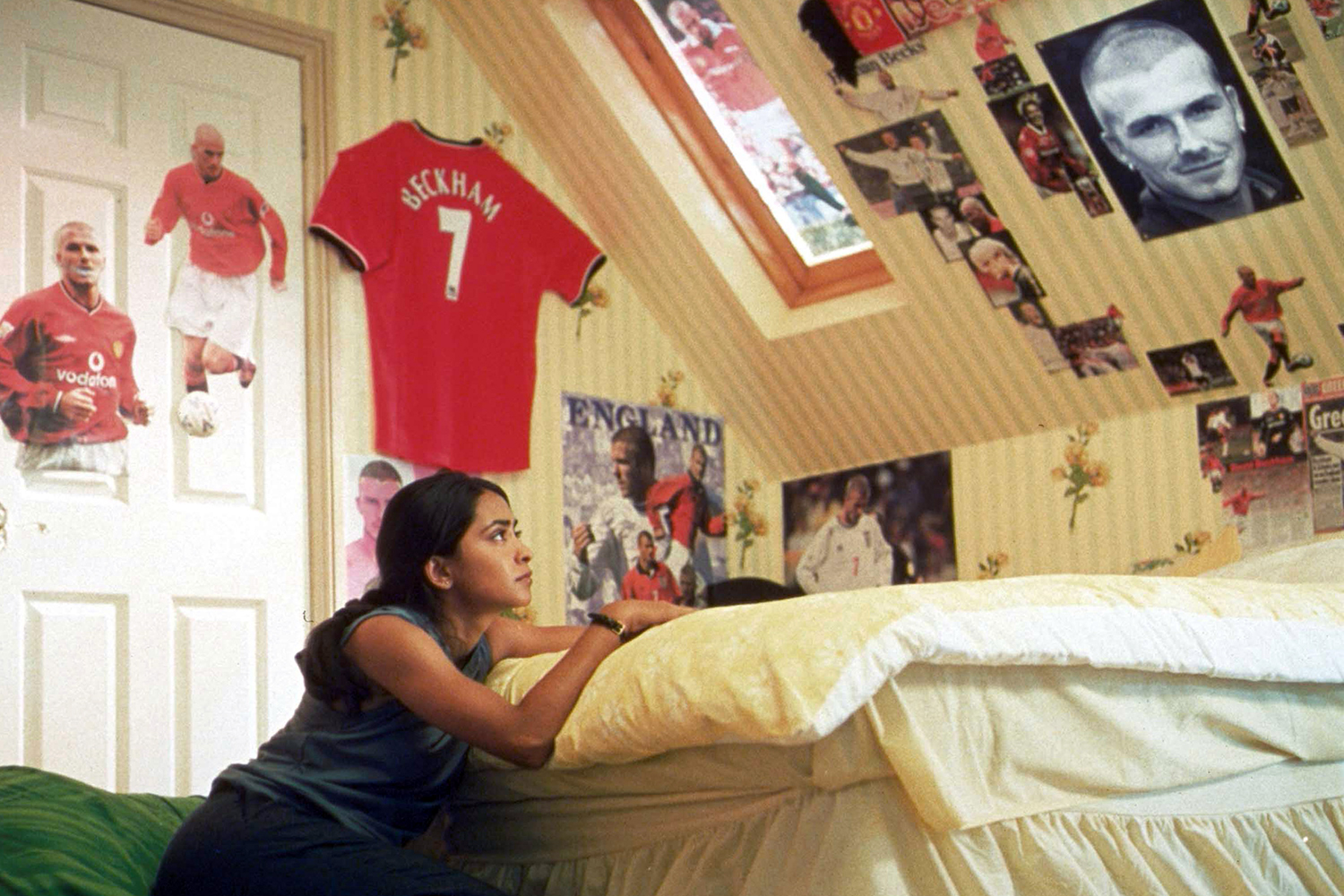“I watched in the cinema three times, week after week, when it came out. I couldn’t believe it. I felt like I was watching myself in the movie.”
Farah Chowdhury was nine years old when Bend It Like Beckham was first released. At the time, the chair of the Arsenal Women’s Supporters’ Club was playing football in the streets by her house and training with Queens Park Rangers.
Chowdhury’s experience was mimicked by hundreds of girls across the country who for the first time felt like they had the opportunity to see themselves on screen. The story of Jesminder “Jess” Bhamra, a British Indian Punjabi Sikh living in Hounslow, and her love of football particularly resonated with British South Asian girls in a time where representation was hard to come by.
Ahead of the Euro 2025 final, director Gurinder Chadha announced that she intended to make a sequel to the cult film, 23 years after it came out. But despite the continued popularity of the film, an English South Asian footballer is still yet to play for the Lionesses, and there are very few British South Asians in the higher levels of the women’s game.
“It had a real impact on South Asian women and girls,” says Miriam Walker-Khan, who made Bend It Like Beckham: 20 Years On, a documentary for the BBC celebrating the anniversary of the film.
“They view Jesminder as a role model, despite her being a fictional character, because we literally did not have anyone else. Unless you have grown up experiencing that, you can’t really fathom what that means, but it is actually quite sad. She genuinely connected with audiences who saw themselves in her.
“But it didn’t change the way that the football world sees South Asian women because there is so much unconscious bias. We are talking about the same stereotypes that existed when the film came out 23 years later.”
One complicated element is the way the film portrays Jess’s family’s reticence for her to play football. South Asian families can be typecast as not wanting their children to play sport, with that being used as a reason for the ethnicity’s lack of success at elite level.
“If it was to be made now, I don’t think they would focus on that as much,” says Marva Kreel, co-creator of the documentary Finding the First South Asian Lioness.
“The first huge wave of South Asian migration was in the 1950s and 60s, so families who are here now, even if they are very true to their culture, still love football. If you think about your South Asian mates, they’re the ones you’re playing five-a-side with and going to the pub to watch England with. Why wouldn’t they want their kids playing football?”
Newsletters
Choose the newsletters you want to receive
View more
For information about how The Observer protects your data, read our Privacy Policy
There’s so much more vocal racism, and it feels like people aren’t afraid to be racist
There’s so much more vocal racism, and it feels like people aren’t afraid to be racist
Farah Chowdhury
“That stereotype of her parents not wanting her to play has probably played into the unconscious bias that coaches and scouts have,” says Walker-Khan. “That’s why it is difficult when you rely on one role model, one person who is represented in the media. Even if it’s a fictional character, it becomes a general consensus.
“For some South Asian girls, it is a real valid thing that they go through when they want to start playing sport. But there are also loads of incredible supportive parents who are the reason that South Asians have got as far as they have in football.”
For Chowdhury, the last 12 months have seen an increase in the amount of racism she has experienced as a women’s football fan, demonstrating the realities for South Asian supporters despite the popularity of a film such as Bend It Like Beckham.
“We’ve had issues with racism in the game for years, but it’s the heaviest I’ve ever felt. There is so much more vocal racism at the moment, and it feels like people aren’t afraid to be racist, which is a really scary thing,” said Chowdhury.
There are, however, players who are continuing to break down barriers on the pitch. Earlier this year, Sareet Kaur Binning made history by becoming the first South Asian to captain England when she led out the Under-16s at the Montaigu Tournament.
Safia Middleton-Patel also became the first British South Asian to play at a senior women’s international tournament when she played for Wales at this summer’s Euros.
“I felt really emotional in that moment,” says Walker-Khan on watching Middleton-Patel play in goal against France in Wales’s second match. “It didn’t feel like watching a game. It felt like watching history.
“I don’t think enough is made of moments like this that we should celebrate because it was a massive deal. It is a moment we can use to show kids that this isn’t a space they don’t belong in because look at Safia. She’s on the biggest stage and she’s British.”
“I’m hesitantly positive,” says Kreel. “We are seeing diversity across the board when it comes to the England set-up. There has been really good work on making the pathways better, but it’s not until we start seeing how that floods into the senior team that we can truly tell.
“It’s not just a case of getting one person from this background in the England team that the job is done. We need to keep refreshing our approach and saying: ‘Who is missing and why are they missing?’”
With the prospect of a second film on the horizon, Kreel, Walker-Khan and Chowdhury hope that a new version of Bend It Like Beckham might shine a light on some of the issues that have continued to affect the ability of British South Asians to make it at the highest levels in football.
“There’s a huge opportunity to educate, as the demographic in women’s football is so varied,” says Chowdhury. “It’s 20-plus years – there’s so much that could be resurfaced.”
“Oh, and we need to see more gay representation,” says Kreel, referring to Jess’s friendship with Jules, played by Keira Knightley, which has often been interpreted as having queer undertones. “Because those two were definitely gay.”
Photograph by Sundance/WireImage



